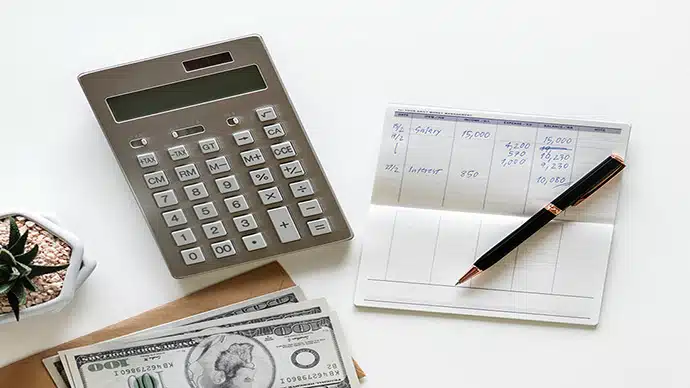
If you're one of the millions of Americans who laments the fact that you don't have savings, it may be time to reevaluate your expenses and determine which ones are and aren't necessary. Right now, you're probably thinking you don't have any major expenses you can comfortably ditch, but maybe your big expenses aren't the ones burning through your paycheck. In fact, if you're anything like many Americans, it's the little expenses that are busting your budget. Below are seven common expenses that most people don't think about, but may be costing you big time.
1. Coffee
Coffee is the number one small expense people accrue on a daily basis, which is why New York Times Bestselling Author David Bach dubbed the term for wasteful spending as “The Latte Factor.” According to an Acorns Money Matters report, Americans spend, on average, $3 a day on coffee—and that's just for plain cups of joe. Add that up, and Americans are spending over $1,100 a year on coffee. If you're someone who prefers gourmet coffee such as a latte or an espresso, you're looking at a loss of double or more than double that amount.
2. Credit Card Interest
If you don't pay off your credit card debt in full each month, you're paying interest on top of the purchase price of an item. The average credit card interest rate is a whopping 16.71%. The average credit card balance for American households is $5,700, which means that the average American loses more than $900 in interest each year by not paying off debts.
3. Unused Subscriptions
Remember that magazine you signed up for before moving to a different apartment across town? The new resident of your old apartment is now enjoying your $21 one-year magazine subscription while you're trying to figure out where your money is going. Those magazine subscriptions aren't the only subscriptions losing you money. There's your gym membership, which you signed up for on January 1 but that is now lost in your junk drawer. There's that Hulu subscription you don't have time to use and the diet app you haven't opened since signing up for your gym membership. If you add up the total cost of your unused subscriptions, you may discover that you're losing hundreds of dollars a year.
4. Food Waste
Food waste is a product of many factors, but shopping while hungry is likely the greatest one. When you shop while hungry, you risk walking out of the grocery store with way more food than you had initially planned to buy. This leads to food waste, which, according to the National Resource Defense Council, costs the average American family $2,200 a year.
5. Dining Out
According to Everyday Power, approximately 70 percent of Americans say they waste money on eating out. Assuming you're like the majority of Americans who buy dinner at $15 a plate five nights a week, you lose about $3,900 a year in dining expenses. Even if you scaled back and ate out only twice a week, you're stilling losing almost $2,500. The best way to save money on food is to make it yourself at home.
6. Cable
With all the available streaming options you have, it doesn't make sense for you to have a $60+ a month cable bill. If you're one of many who claims you keep the wire because of the news, you're fooling yourself but not others. You can always go online for instant updates from major news sources such as CNBC, Fox, MSNBC and CNN. As for entertainment, you can stream from Netflix, Hulu and Amazon, and you can rent from Redbox.
7. Overdraft, ATM and Late Fees
If you don't have a savings account, you probably don't have room in your budget for any of the above six wasteful expenses. However, if you continue to throw money away on fancy lattes, unused subscriptions, excessive amounts of food and cable, you may end up overspending and going beyond your means. The average bank overdraft fee is $35. Assuming you go three days without funds in your account, you lose as much as $105 every time you overdraft.
On a similar note, every time you pull funds from an ATM not owned by your bank, you lose $2 to $5. When you're late paying a bill, you lose money. If you're vigilant about how much money you have, from where you pull it and how you spend it, you can save hundreds to thousands a year.
If there's an expense that truly makes you happy, such as your morning latte, by all means, keep forking over the dough. But for all those other expenses you either don't know about or don't get any use out of, ditch them. Doing so may be the best financial decision you ever make. Another sound financial decision would be to monitor your credit score with the help of Credit.com. We provide you with two free credit scores that are updated every 14 days. Sign up now to see where your credit stands.
Written By: Credit.com


